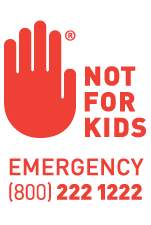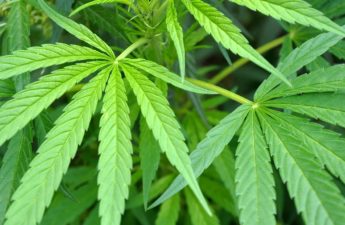When treats become toxic: the Washington Poison Center’s role in preventing and reducing harm from cannabis use

Brownies, gummies, soda, chocolate… cannabis products come in all forms of sweet treats.
But, what happens when people, especially kids, mistake a cannabis product for normal food?
An important first step is calling the Washington Poison Center, which provides immediate, free, confidential, and expert treatment advice through its 24/7/365 emergency telephone helpline in case of poisonings, drug overdoses, and toxic exposures.
Unintentional ingestion of edible marijuana products and poisoning from high potency cannabis products is a concern outlined within King County’s Health and Human Services priorities regarding marijuana legalization, released in May 2018.
The Washington Poison Center is one important organization helping to address these issues through their emergency telephone helpline, as well as participation in the King County Youth Marijuana Prevention and Education Program, and other statewide efforts.
We sat down with Arti Patel, Public Health Education Director at the Washington Poison Center, to learn more.
First, tell us about the Washington Poison Center.
The Washington Poison Center is a 501(c)3 nonprofit organization serving Washingtonians since 1956. As one of 55 poison centers nationwide, it is the public health safety net for poisonings, drug overdoses, and toxic exposures in Washington state.
Its Specialists in Poison Information – nurses and pharmacists with expert-level training in medical toxicology – answer more than 63,000 calls a year.
Why do people call the Washington Poison Center about cannabis?
Although many people perceive “poison” as something that causes serious health consequences or death, the Washington Poison Center considers “poison” to be much broader, covering any exposure to a substance that results in abnormal or unwanted side effects (regardless of severity).
So, people call the Washington Poison Center when they’re having unwanted effects after using cannabis, or if they have questions about cannabis use. They also call when either adults or children accidentally ingest cannabis products.
In 2017, the Washington Poison Center received 378 calls related to cannabis, 116 of which were in King County. Of the total Washington calls, 82 were for children between the ages of 0 and 5, making accidental ingestion by kids a top concern.
Let’s talk more about kids and cannabis exposures. What are the trends in cannabis calls?
The number of calls about children and cannabis exposures is increasing. These calls are mainly about children accidentally ingesting cannabis, which can happen when they mistake candy and other cannabis products as regular food. Kids can become sick enough to need emergency medical care.
For more information on cannabis call trends, see the Washington Poison Center’s Annual Toxic Trend Report 2017 – Cannabis.
How is the Washington Poison Center addressing the problem of accidental cannabis ingestion by kids?
The Washington Poison Center partnered with the Washington Liquor and Cannabis Board (LCB) and Washington Cannabis Alliance to develop a warning sign and communications strategy to protect kids from accidental ingestion.

The result of this partnership was the “Not for Kids” warning symbol, which reminds adults and kids that an edible product contains cannabis, and lists the number for the Washington Poison Center’s emergency telephone helpline if an exposure occurs.
The Washington Poison Center worked with LCB to create a policy around the “Not for Kids” symbol—it’s now required on packaging for all edible cannabis products (i.e., all cannabis-infused products for oral ingestion) in Washington.
Where can people learn more about “Not for Kids” and its requirements?
- Washington Poison Center: Not for Kids
- Washington Liquor and Cannabis Board: Not for Kids Warning Symbol
Are there any other safety tips to help prevent accidental ingestion?
Cannabis consumers should always lock up their cannabis products, regardless of whether they have the “Not for Kids” symbol.
Plus, plant and oil product packaging do not require the “Not for Kids” symbol, so consumers need to follow safety precautions to keep these products out of reach.
Anything else we should know?
The Washington Poison Center is always here to help: 24 hours a day, 7 days a week, 365 days a year for Washingtonians, hospital clinical staff, and first responders needing assistance with poisonings, drug overdoses or toxic exposures. They’ve answered over 4 million calls in 62 years.
If you or someone you know needs assistance with a poisoning, drug overdose, or toxic exposure, call the Washington Poison Center at 1 (800) 222-1222! Interpreters are available in over 270 languages.
What if pets accidentally ingest cannabis?
Pet exposures are handled by the ASPCA Animal Poison Control Center—you can call them at (888) 426-4435. Similar to the Washington Poison Center, their telephone helpline is available 24/7/365.
